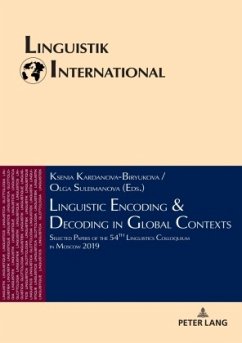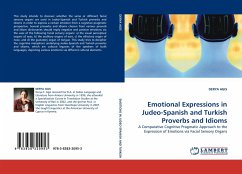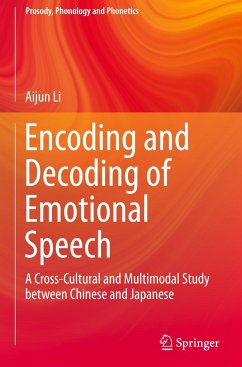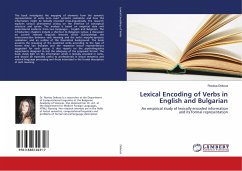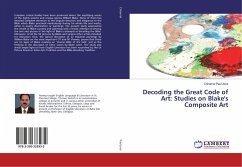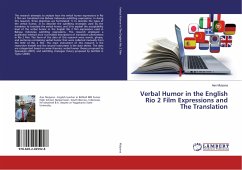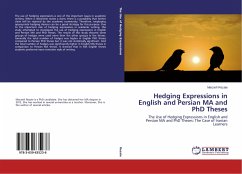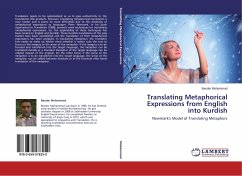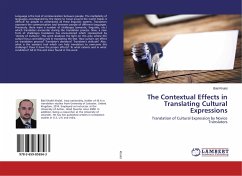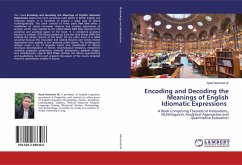
Encoding and Decoding the Meanings of English Idiomatic Expressions
A Book Comprising Theoretical Innovations, Multilinguistic Analytical Approaches and Quantitative Evaluation
Versandkostenfrei!
Versandfertig in 6-10 Tagen
65,99 €
inkl. MwSt.

PAYBACK Punkte
33 °P sammeln!
The book Encoding and Decoding the Meanings of English Idiomatic Expressions tackles the most commonly used idioms in British English and American English. It is furnished to analyze a great deal of idioms multilinguistically. The book consists of three parts. Part One offers a tessellation of newly innovated theories and creative approaches of analysis, which were applied to the culled idioms. Part Two represents the analytical and practical aspect of the book. It is considered analytical because it analyzes (150) idioms picked up from the total idioms (500) that embody the whole corpora of t...
The book Encoding and Decoding the Meanings of English Idiomatic Expressions tackles the most commonly used idioms in British English and American English. It is furnished to analyze a great deal of idioms multilinguistically. The book consists of three parts. Part One offers a tessellation of newly innovated theories and creative approaches of analysis, which were applied to the culled idioms. Part Two represents the analytical and practical aspect of the book. It is considered analytical because it analyzes (150) idioms picked up from the total idioms (500) that embody the whole corpora of the book. On the other hand, it is called analytical because the innovative and existed theories and newly created approaches were applied to the randomly culled idioms. The multilinguistic analysis covers a set of linguistic topics new classification of idioms, structural decomposition of idioms, morphological templates, metaphoric creativity, pragmatic projections, semantic phenomena, symbolic images, and sociolinguistic aspects. Part Three handles the idioms quantitatively and qualitatively. As this part presents discussions of the results obtained from the quantitative analysis of idioms.





